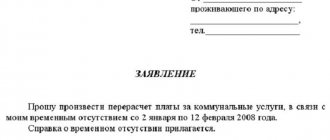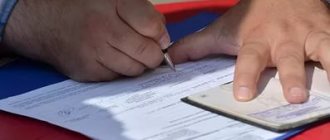Unscrupulous payers, along with low-income citizens who are experiencing certain financial difficulties, sooner or later wonder whether the management company (MC), homeowners' association (HOA) or housing and communal services (HCS) has the legal right to turn off electricity for non-payment.
This aspect finds an answer in the current legislation and government regulations that regulate the relations of residents with institutions providing public services. It can be clearly noted that the management company (MC), HOA or housing and communal services actually has the right to turn off the lights if the terms of the rent are violated. Today, the debt for electricity has crossed the border into several hundred billions. The third part of this amount appeared due to the fault of citizens, and not legal entities, therefore the need to suppress malicious non-payment of utility services is fully justified
and can influence the current situation.
Penalties for debts may vary depending on the degree of influence on the debtor. However, all methods are aimed purely at the need to get citizens to comply with the terms of payment for utility services, even if they temporarily do not have such an opportunity.
Rights of the management company
The responsible authorities, be it the management company, housing and communal services or homeowners associations, can take any measures against defaulters who are provided with utility services. In this case, the management company is guided by certain rules:
Dear readers!
Our articles talk about typical ways to resolve legal issues, but each case is unique. If you want to find out how to solve your specific problem, please contact the online consultant form on the right →
It's fast and free!
Or call us by phone (24/7):
If you want to find out how to solve your particular problem, call us by phone. It's fast and free!
+7 Moscow,
Moscow region
+7 Saint Petersburg,
Leningrad region
+7 Regions
(free call for all regions of Russia)
- The facts of debt equal to three or more monthly payments are taken into account depending on the average monthly norms, and not according to the meters;
- Before applying any measure, management companies, housing and communal services, and homeowners associations are required to notify the debtor in writing about this by sending an official registered letter, which will be delivered to the tenant personally. Although, as practice shows, this rule is often not observed and can be violated;
- Before being punished for debts, a person is given a period of thirty days, during which the offender can correct the situation by paying utilities or another method;
- After the allotted thirty-day period, the defaulter is sent a second notice informing them that the lights will be turned off in three days.
Housing and communal services, management companies, and homeowners' associations can turn off electricity without warning only if there is a threat of an emergency. In other cases, the debtor has the right to complain, since such actions will be considered illegal.
Information and loyal preventive measures
Since electricity is by far the most popular type of utility service, without which it is difficult to imagine modern life, especially in a city or for entrepreneurs for whom such measures will cause losses, sending a notice for debts is a particularly important point in the disconnection procedure. A citizen can receive such a letter if he ignores the rent for even two whole months; the management company, HOA, housing and communal services have the right to this quite legally.
The text of the notice regarding rent must indicate the time during which citizens can influence the preventive measures that have not yet been taken, and must also mention when and how the so-called punishment will be executed. At the same time, the management company providing a list of utility services may partially limit the supply of electricity.
Notification rules require resending the email. Three days after this, the management company, housing and communal services, and homeowners' associations have the right to send a specialist who will seal the meters and turn off the electricity to the defaulter. The seal will be removed only after the debts have been repaid in full. At the same time, if a person is not able to repay his debts by paying the entire amount at once, he has the right to contact the HOA, housing and communal services, management company and ask for an installment plan.
Informing the consumer
In 2021, not a single person can imagine life without electricity. What can we say about large and small enterprises where all work will stop without electricity supply. And if an ordinary person may simply be inconvenient, then organizations will suffer a major loss. That is why the law establishes rules for informing consumers and determines the procedure for turning off the lights, violation of which is not permissible. According to the Civil Code, turning off electricity, even for non-payment, is impossible if an accident may occur as a result. The consumer must be previously acquainted with the intentions of the energy sales staff. Notification occurs by means of a written notification (for which you need to sign) or by registered mail (via mail with a return receipt). Other methods will be considered invalid according to the 2021 law.
The debtor will receive such a notice if he does not pay for electricity for two full months, and further in the direction of increasing the debt. Once you have been made aware of your debt, you are given 20 days to get rid of the non-payment.
During this time, the electricity supplier may partially limit the supply of electricity. If you are not going to eliminate the non-payment, you will receive another warning, in the same order as the first. But then, after 3 days you will be left without electricity. The meter is sealed by energy sales specialists until the debt is fully repaid. If you are unable to pay off the entire amount at once, contact your home's electricity supplier for an installment plan. In general, you can find a civilized way out of any current situation. Especially if you have the opportunity to consult with competent lawyers at hand. You can do this on our website without financial costs.
Structure of the notice and act
In order for the procedure of turning off the lights to be legal, government regulations require it to be recorded in a special act, which can subsequently be used as evidence if the case goes to court. This document does not have a set form, but is mandatory. However, some requirements are presented to it, according to which the text states:
- A complete or partial power outage is carried out;
- Date and time of the procedure;
- Last name, first name, patronymic of the defaulter, his personal account number, address of the location of the property;
- Step-by-step description of the actions taken;
- Meter number and its indicators as of the date of sealing;
- The reason why a citizen's electricity is turned off.
An act is drawn up in three copies, each of which must be signed by the defaulter and the management company. At the same time, if, when sealing the meter, Energosbyt employees did not draw up a report or drew it up incorrectly, this will mean that the light was turned off illegally. This allows the defaulter to file a complaint against the Criminal Code with a judicial authority, which can correct the current problem for a while.
Mandatory points of written notice:
- Last name, first name, patronymic and personal account of the defaulter;
- The amount of debt and an indication for what period of time;
- When it is planned to turn off the lights, that is, how much time a person has to correct the situation;
- Details, signatures of officials and seals of the management company, homeowners' association, housing and communal services;
- Options and conditions for debt repayment.
Ways to collect debts from citizens
There are various measures that housing and communal services use to collect debts from unscrupulous residents.
These include:
- filing a lawsuit against a citizen who has not paid rent for more than 2 months;
- debiting funds from the debtor's bank account to pay rent in accordance with the order of the judicial authority;
- termination of other services.
All these actions are legal on the part of the utility company in the event of large debts from the tenant. But such measures must be carried out in accordance with all established standards.
Important! Otherwise, the supplier will face civil or criminal liability.
Illegal actions of housing and communal services
It often happens that housing and communal services interrupt the supply of electricity illegally. This means that the procedure prescribed by the Housing Code was not followed and the supply stopped without warning.
Turning off the lights without the previous two notices is a direct violation of the law. The absence of an act on the suspension of this service and the implementation of proper actions is the basis for initiating a case of violation of the rights of owners to receive public amenities.
If such illegal actions cause grave consequences, you can appeal to the court on the basis of Article 547 of the Civil Code of the Russian Federation or Article 215 of the Criminal Code of the Russian Federation.
Next, a trial takes place aimed at protecting the rights of the affected persons, and a decision is made to punish the employees of the management company. In this case, you don’t have to pay off the debt on the spot, but wait for notification.
Thus, turning off the lights for non-payment of utility bills applies to malicious debtors whose debt is more than 2 months. According to Government Decree No. 354, the supplier has the right to suspend the supply of electricity. It can be renewed when the debt is repaid in the prescribed manner.
Illegal shutdown
The main purpose of the procedure in which lights are turned off for non-payment of utilities is to combat the irresponsibility of the population, which significantly affects the economy. However, despite the fact that the management company has the right to seal meters and turn off electricity for debts, you need to know that the management company is not omnipotent and is subject to the law, and violators have legal protection from the state. This means that the management company must follow clear rules for the entire procedure from start to finish. If there are violations, the matter can be taken in a completely different direction.
So, for example, the Criminal Code cannot turn off the lights without the written warning mentioned above. If this happens, the actions of the Criminal Code will be considered unlawful and subject to appeal. Referring to the regulations of the Civil Code of the Russian Federation, a complete or partial shutdown of electricity occurs only after the parties reach an agreement or after the expiration of a specified period after receiving a notification, if no measures were taken by the defaulter.
If the Criminal Code turns off the lights without following the rules for sending notifications, the citizen has the right to file a complaint and can even demand compensation for moral damage.
Lights out for non-payment of utilities in 2021
In accordance with Art. 153 of the Housing Code, both individuals and legal entities have an obligation to pay utility bills, and payments must be made on time and in full (Part 1). At the same time, Part 2 of this article reveals in detail the circle of persons obliged to pay for housing and communal services (HCS):
- owners of their own homes;
- housing users under social tenancy agreements;
- tenants of municipal and state housing;
- members of the housing cooperative;
- legal entities that are tenants of municipal and government premises;
- developers before transferring the premises to the user and the users themselves after transfer by the developer.
In accordance with Part 3 of Art. 153 LCD, while municipal and state housing is not occupied by residents, state and municipal authorities pay for utilities in it, respectively.
The timeliness of payment is determined by Art. 155 ZhK: this is the period until the 10th day of the month following the reporting month. In some cases, the date may be different if this is specifically indicated in the agreement for the provision of the relevant services.
Can the lights in an apartment be turned off for non-payment?
They may well suspend the supply of electricity in case of non-payment. Deprivation of energy supply to a utility debtor is a common sanction if he does not pay for more than three months. This sanction, although used less frequently than the accrual of penalties and fines, is also quite common.
Moreover, if a tenant uses the occupied space on the basis of a social tenancy agreement, then for non-payment he may even be subject to eviction.
As a general rule, the resource supplying organization can turn off the electricity provided that the debtor is notified in advance. The law provides for only 5 moments in which shutdown can occur without warning:
- in case of an accident or a high probability of its occurrence;
- in case of emergencies;
- if the consumer illegally connected to the public network;
- if a citizen uses household appliances/machines whose power exceeds the maximum permissible voltage in the network;
- instructions from regulatory authorities to limit the operation of the network.
Only in these cases does the resource supplying organization have the right to stop supplying electricity without warning (clause 115 of Resolution 354).
A natural question is whether electricity can be turned off for heating debt. In this regard, the answer is: yes, they can, since, for example, in winter it is illegal to turn off the heating. The provision of all utilities is included in the range of management responsibilities, so everything that can be turned off can be turned off (lighting is the easiest to turn off among the entire list of utilities).
Legislation
Termination or limitation of power supply to residential premises is regulated by Chapter 11 of Government Regulation 354. This regulation establishes the procedure and procedure for stopping the supply of electricity.
The Resolution also states that stopping the supply of an unpaid resource should not violate the rights of bona fide payers to receive it (clause 121) . In addition, turning off the light should not lead to:
- damage to common property;
- failure to comply with the legitimate interests of bona fide payers;
- failure to comply with the requirements for the operation of the building and its premises.
Also, the rules for limiting (in whole or in part) energy consumption are established by Government Decree No. 442 of May 4, 2012.
If the management company suspends energy supplies to a defaulter, for example, without warning or in violation of the established procedure, then Article 330 of the Criminal Code “Arbitrariness” may be applied to those responsible for this act, which implies punishment in the form of a fine of up to 80,000 rubles or forced or compulsory labor.
Arbitrariness can only be proven in court by challenging the legality of the shutdown if it caused damage to the property of a citizen or organization, or led to moral damage.
Ways to correct the situation
If the management company did everything according to the rules and turned off the lights, there is a sequence for resolving this issue:
- Pay off debts. If a citizen does not have such an opportunity due to financial difficulties, he must go to the local energy company and ask in writing for a six-month deferment. According to the law, such a request cannot be refused. Everyone without exception has the right to it;
- After approval of the deferment, the applicant needs to obtain the appropriate certificate about this and come with it to his management company, HOA or housing and communal services, where he will have to pay a small amount, usually no more than one thousand rubles;
- After paying, you need to wait for an electrician to connect the lights.
If the tenant is sure that the light was turned off illegally, a statement is written to the prosecutor’s office, after which this body has the right to check the criminal code. When going to court is inevitable, you should not let the matter take its course and wait for a decision. It is necessary to prepare documents that will testify in favor of the utility defaulter.
How to reconnect the light after disconnection?
To return light to your home, you need to pay off the debt. Moreover, in the event of a difficult financial situation, the debtor may be given the opportunity to pay in installments (for example, due to the presence of a small child). Installment payment is provided for six months.
Once the repayment has been made in full (or an installment agreement has been concluded), you can submit an application to the management company to reconnect the electricity. This service costs around 1 thousand rubles.
After submitting the application, the light will return to the apartment within 24 hours . The procedure for returning electricity is also documented in an act similar to what is written during a power outage.
To prevent such situations from happening in the future, it is better to pay regularly for all services. Then you won’t have to endure the inconvenience of a power outage. If, due to some special circumstances, timely payment is impossible, then you can always agree on an installment plan.











